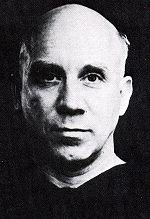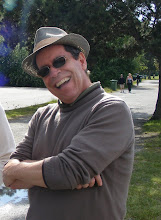November 21, 1968Merton notes today that he he has written cards to Polish poet
Czeslaw Milosz, long time friend Sr. Therese
Lentfoehr, Kentucky friends John and Rena Niles, and Tom Jerry Smith and letters to Richard Chi and
Nyanaponika Thera.
A Life in Letters
I am absolutely astounded at the volume of letters that Thomas Merton wrote and received. I have a very small sample of these letters in
"Thomas Merton: A Life in Letters", recently
edited by William Shannon and Christine
Bochen;
"Cold War Letters", a collection of letters written in 1961 and 62; and various excerpts in other Merton books.
The collection of Merton's letters at the
Thomas Merton Center includes over 10,000 letters! They reflect his thoughts on a wide range of interests including everything from peace, politics, and the environment to religious life and contemplation. They also reveal the incredible depth of trust and friendship which developed between Merton and many of his correspondents over the years.
William Shannon and Christine
Bochen, in their introduction to "Thomas Merton: A Life in Letters" give an overview of the importance of letters in Merton's life. They write...
"Merton's one and only way of reaching his friends was, normally through his writing... Although he chose a solitary life (and reveled in it), he loved people and craved human contact. His letters helped to fill that need and, in the process, created and extraordinary record of Merton's life and the development of his thought." TMLL p.viiiOf course it was a two-way street. Shannon and Bochen further note..."Without question Merton enjoyed receiving letters, as he admitted in one he wrote to Sister Therese Lentfoehr on September 25, 1956: "I do not hesitate to confess that letters from my friends have always and will always mean a great deal to me." TMLL p.viiiMerton himself, in his November 1958 letter to Pope John XXIII describes his letter writing as an "apostolate of friendship".John Jacob Niles
John Niles, Jackie Roberts, Thomas Merton, Janelle Dishman
(click picture for Niles-Merton information)
One of Merton's Kentucky friends, to whom he writes on this day, is noted American folk music historian and balladeer
John Jacob Niles. Niles has written music for a collection of Merton's poems which has come to be known as the
"Niles-Merton Song Cycle". Merton made a couple of visits to the "Boot Hill Farm" of Niles in 1967 and 1968 to hear some of the songs but wasn't able to hear them all before he left for his Asian journey.
A Lost Art of RelationshipOne cannot help but to note with sadness how much we have lost this wonderful art of relationship. The brevity and haste of the e-mail doesn't come close to establishing the depth of connection established in
long term written correspondence. It is ironic that we live in a age with more ways of being connected, e-mail, cell phones, blackberries, etc, and yet are more isolated...
Yours very truly... Rob
"Letter writing is the only device for combining solitude with good company." Lord Byron

 While in Kandy, Merton visits German-born, Buddhist monk Nyanaponika Thera. Bhikkhu Nyanaponika Thera is of the Theravada tradition and lives in a hermitage in the jungle near Kandy. Nyanaponika Thera is a co-founder of the Buddhist Publication Society and author of numerous books on Theravada Buddhism. Born Siegmund Feniger in 1901 in Germany, he died in 1994 at his forest hermitage outside of Kandy at the ripe old age of 93. Wikipedia. The Buddhist Publication Society continues its work today as a major publisher of books on Theravadda Buddhism. 2008 is its 50th Anniversary.
While in Kandy, Merton visits German-born, Buddhist monk Nyanaponika Thera. Bhikkhu Nyanaponika Thera is of the Theravada tradition and lives in a hermitage in the jungle near Kandy. Nyanaponika Thera is a co-founder of the Buddhist Publication Society and author of numerous books on Theravada Buddhism. Born Siegmund Feniger in 1901 in Germany, he died in 1994 at his forest hermitage outside of Kandy at the ripe old age of 93. Wikipedia. The Buddhist Publication Society continues its work today as a major publisher of books on Theravadda Buddhism. 2008 is its 50th Anniversary.













 "Madras is a bright and leisurely city. The people are less desperate than the Bengalis. It is more truly India than Delhi or Calcutta (whatever "truly India" might be-as if I were capable of knowing and defining it!)."
"Madras is a bright and leisurely city. The people are less desperate than the Bengalis. It is more truly India than Delhi or Calcutta (whatever "truly India" might be-as if I were capable of knowing and defining it!)." 







 Today Merton visits Kalu Rinpoche, a Tibetan retreat master in Sonada. At the time of Merton's visit there were 16 Buddhist hermits in three year retreats with Karlu.
Today Merton visits Kalu Rinpoche, a Tibetan retreat master in Sonada. At the time of Merton's visit there were 16 Buddhist hermits in three year retreats with Karlu.








 Thomas Merton figures prominently in Douglass's work. Douglass poses the reader's question... "The reader may wonder why the perspective of a contemplative monk, Thomas Merton, figures so prominently in a book about the JFK assassination. Why is the Trappist monk Thomas Merton my Virgil on this pilgrimage?"
Thomas Merton figures prominently in Douglass's work. Douglass poses the reader's question... "The reader may wonder why the perspective of a contemplative monk, Thomas Merton, figures so prominently in a book about the JFK assassination. Why is the Trappist monk Thomas Merton my Virgil on this pilgrimage?"













 "Another question: would this move be temporary or permanent? I do not think I ought to separate myself completely from Gethsemani, even while maintaining an official residence there, legally only. I suppose I ought eventually to end my days there. I do in many ways miss it. There is no problem of my wanting to simply "leave Gethsemani." It is my monastery and being away has helped me see it in perspective and love it more."
"Another question: would this move be temporary or permanent? I do not think I ought to separate myself completely from Gethsemani, even while maintaining an official residence there, legally only. I suppose I ought eventually to end my days there. I do in many ways miss it. There is no problem of my wanting to simply "leave Gethsemani." It is my monastery and being away has helped me see it in perspective and love it more."


